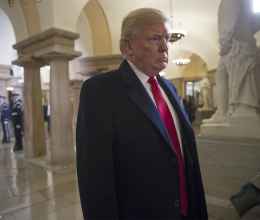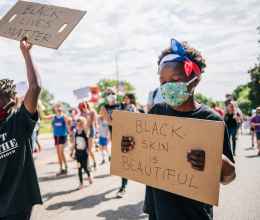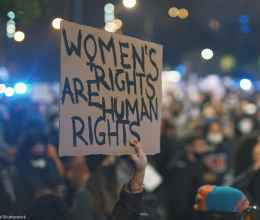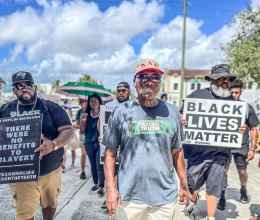
This post is originally published in South Florida Sun Sentinel.
The young man, born in Southeast Asia but a U.S. citizen for many years, was in a Home Depot in Sarasota with a white female friend weeks before the recent statewide shutdown due to COVID-19. He realized they were being followed aisle to aisle by a white man. The young man is 5’ 3’’ and slim; the man following him was about eight inches taller.
Finally, the other man approached the woman.
“Are you with him?” he demanded. She said it was none of his business, and he turned to the Asian man.
“Why are you here?” he demanded. “You should not be out now. Your people bought the Chinese virus here.”
The young man advised his interrogator that he isn’t Chinese; he’s from Laos. He said he hadn’t been out of the U.S. in 15 years, but that it wasn’t anyone else’s business. The would-be “virus vigilante” eventually retreated.
For the young man, it wasn’t the first time since COVID-19 arrived on our shores that he’d drawn unwanted attention. Days earlier, sitting on Lido Beach in Bradenton, he was approached by a group of elderly white people. He said they told him he needed to take the virus seriously.
“You are affecting us all,” said one. “You need to leave the beach,” said another.
The young man took the swim he’d planned and left. But he noticed that many other people were on the sand, and he — the only Asian — was the only one they approached. Wanting to avoid more harassment, he asked not to be identified for this article.
Around the country, Asian Americans have reported incidents of harassment since the coronavirus reached the U.S. Much of it has been verbal abuse, but people have also been spit on and otherwise attacked.
John Lantigua is an investigator for the American Civil Liberties Union (ACLU) of Florida.(Courtesy ACLU of Florida)
On March 14, a Burmese man was stabbed in a Sam’s Club outlet in Texas. One of the two children with him was also stabbed. They survived. Police said the assailant admitted doing it because he suspected they were carrying COVID-19
President Trump recently posted a Twitter message in defense of the Asian population.
"It is very important that we totally protect our Asian American community in the United States, and all around the world," Trump tweeted. "They are amazing people, and the spreading of the Virus is NOT their fault in any way, shape, or form."
But this was after he had repeatedly and defiantly referred to COVID-19 as the “Chinese virus.” Asian American leaders have blamed that rhetoric for contributing to an increase in racist incidents.
The term “Chinese virus” has spread to Florida. U.S. Sen. Rick Scott uses it. And when Gov. Ron DeSantis ordered state parks closed March 23 a sign was posted at Blue Springs State Park in Gilchrist County: “By order of Governor DeSantis ALL state | parks are now closed to all visitation due to the Chinese Corona Virus.”
According to Winnie Tang, president of the Asian American Federation of Florida, state officials say that was the only park that used such language, that it was not authorized by Gov. DeSantis and has since been taken down.
Tang, 58, is of Chinese descent, has lived in the U.S. for more than 40 years and became a citizen in 1996. She is among 450,000 Asians in Florida, according to the 2010 Census.
It pains Tang to hear of racial targeting of Asians in the state. Before school was suspended, she was told of Asian children being taunted by other kids. Recently, two young Chinese people walking in a Weston park reported being assailed with chants of “coronavirus” by a person nearby.
According to Next Shark, an Asian affairs website, an Asian female musician who lives in Davie received menacing texts saying she would not be hired again until “you surrender your Chinese passport and renounce your Chinese citizenship.”
One Miami-Dade woman of Korean descent said she received so many nasty looks while in her car or on the street in past weeks, that she now sends her white husband to do any necessary errands. Also from Miami, an Instagram video was posted showing a man chasing an elderly Asian woman down the street with a bottle of sanitizer. Some call it a joke, but it is not a joke to many Asians.
Tang assumes other minor incidents have occurred but not reached her. So far Florida has been lucky that no serious acts of violence have surfaced. But the FBI has warned that, even with the population in general staying close to home, incidents may increase nationwide as the crisis worsens.
Tang hopes solidarity will prevail in Florida.
“Many Asians have been here in Florida a long time and contributing to the community,” she says. “Using language like ‘Chinese virus’ jeopardizes them. It’s irresponsible. It gets scary”
“We are all facing the same public health emergency,” she says. “The virus does not discriminate by race. This is no time to be pointing fingers.”






